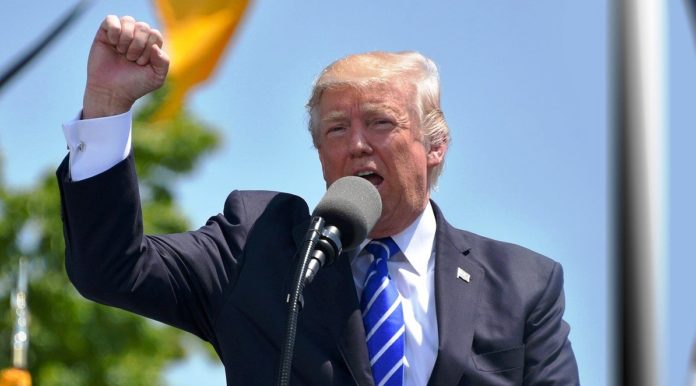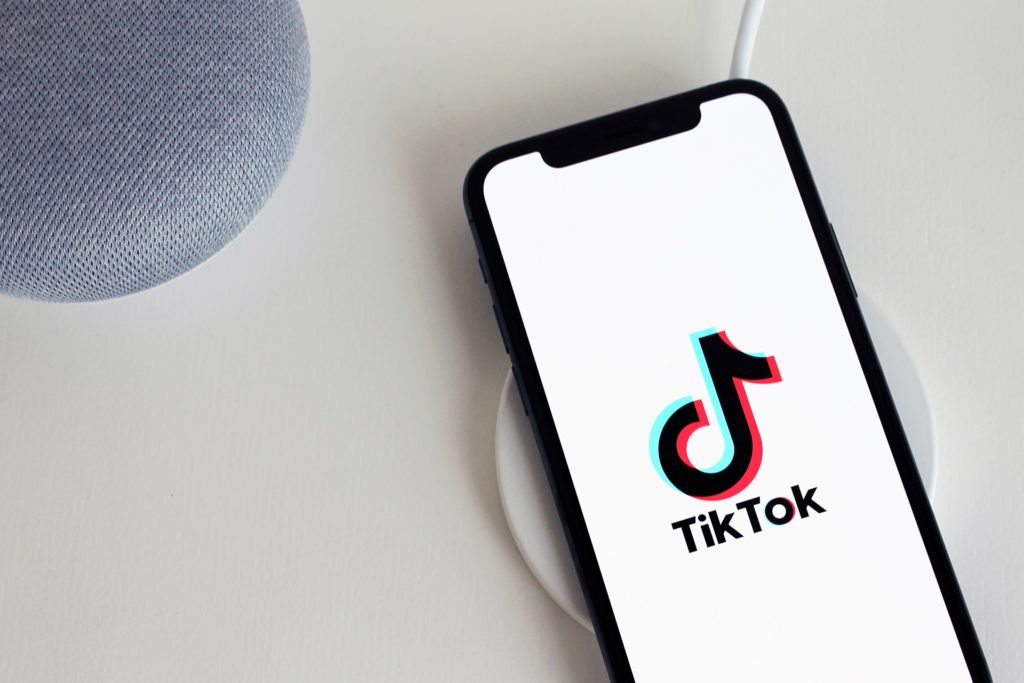
President Donald Trump on Thursday (August 6) issued separate executive orders to ban transactions with popular Chinese-owned apps TikTok and We Chat in the United States.
Trump has been threatening a ban on the two popular Chinese-owned apps owned by their parent companies ByteDance and Tencent since last month.
The ban will prohibit U.S. businesses from making transactions with ByteDance and Tencent and will take effect in 45 days.
While it is unclear at this point how the executive order will affect ByteDance and Tencent’s operations in the U.S., this latest White House action could potentially worsen the ongoing trade war between the United States and China.
On Wednesday (August 5), U.S.Secretary of State Mike Pompeo also announced the expansion of its Clean Network program which seeks restrictions for Chinese-owned businesses particularly phone makers to pre-install U.S. Apps like Google and Facebook.
Similar to what happened to Huawei when it lost access to some Google services, the Clean Network program could affect other Chinese phone makers like Xiaomi, Oppo, and Vivo.
Meanwhile, Trump said the increasing number of TikTok and WeChat users is a cause for concern as it “continues to threaten the national security, foreign policy, and economy of the United States.”
The U.S. President cited the International Emergency Economic Powers Act and the National Emergencies Act as among the laws that grant authority for him to issue both orders.
What does Trump’s TikTok executive order say?
Popular short video format app TikTok, with 800 million users worldwide, has seen increased users from the U.S. with over 100 million users.
TikTok, owned by Chinese developer ByteDance, has also been downloaded 175 million times in the U.S.
Through the app, Trump says TikTok captures “vast swaths of information” that includes Internet and other network activity information such as location data, browsing, and search histories.

According to Trump, the data collected from Americans can be accessed by the Chinese Communist Party thereby gaining access to personal and proprietary information.
The executive order also stated that by having this access, TikTok could “potentially allow China to track the locations of Federal employees and contractors, build dossiers of personal information for blackmail, and conduct corporate espionage.”
The order also accused TikTok of censoring content that Beijing deems politically sensitive.
Some of this content pertains to protests in Hong Kong against the Beijing-sponsored national security law and China’s treatment of Uyghur minorities in Xinjiang province.
“This mobile application may also be used for disinformation campaigns that benefit the Chinese Communist Party, such as when TikTok videos spread debunked conspiracy theories about the origins of the 2019 Novel Coronavirus.,” Trump said.
The president further said that “these risks are real” mentioning that the Homeland Security department, Transportation Security Administration, and the United States Armed Forces have already banned the use of TikTok on Federal Government phones.
He also cited the recent banning of TikTok by the government of India accusing the app of stealing and transmitting user’s data in an unauthorized manner to servers outside the country.
What does Trump’s order in banning of WeChat say?
Like TikTok, Trump says WeChat also automatically captures vast swaths of information from its users.
“This data collection threatens to allow the Chinese Communist Party access to Americans’ personal and proprietary information,” the order said.
Mobile messaging app WeChat now has an estimated 1.15 billion users worldwide with 90 percent of its users in China.
However, some users of the popular messaging and electronic payment application owned by the Chinese company Tencent Holdings Ltd. are also located in the U.S.

Trump, in the executive order, said WeChat also captures personal and proprietary information of Chinese nationals visiting the U.S. which allows Beijing to keep tabs on Chinese citizens.
The U.S. President, as an example, cited that in March 2019, a researcher reportedly discovered a Chinese database containing billions of WeChat messages sent from users in not only China but also the United States, Taiwan, South Korea, and Australia.
Citing the same issues he had with TikTok, Trump said WeChat also censors content that the Chinese Communist Party deems politically sensitive. It may also be used for disinformation campaigns that benefit the Chinese Communist Party.
“These risks have led other countries, including Australia and India, to begin restricting or banning the use of WeChat. The United States must take aggressive action against the owner of WeChat to protect our national security.”
ByteDance and Tencent have yet to issue statements on the latest executive order from Trump.
ByteDance, TikTok’s owner, in the meantime is still in the middle of discussions with tech giant Microsoft for the latter to acquire its U.S. assets.
Microsoft said in a blog post last week that it will have discussions on the potential purchase of the popular app TikTok until September 15.
With these latest actions from Trump against the Chinese-owned apps, it will also be just a matter of time before Beijing also issues retaliatory actions in the ongoing US-China trade war.
Read More: Gold Prices Surge to $2000 per ounce: Is It Time To Invest?


